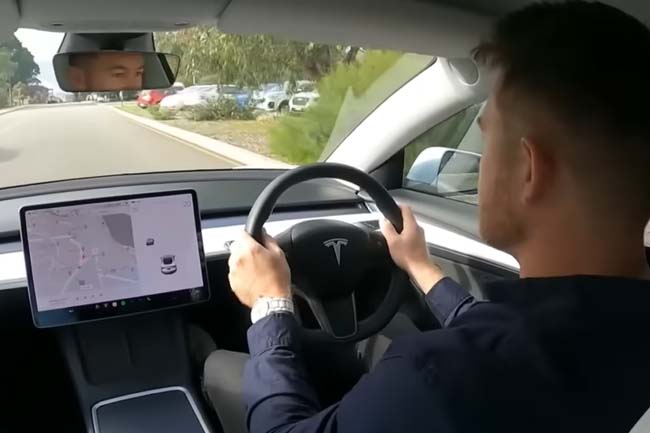Amidst the Brexit discussions, there has been a lack of focus on deeper issues such as child poverty and health, writes Dr David Shearman.
I FEEL DESPAIR, anguish and anger over the chaos and harm being inflicted on my former country and on democracy itself by the UK Government’s abject failure on Brexit.
There are lessons for all democracies – not least Australia – from their behaviour and incompetence. The overwhelming self-interest and placement of Party before country may well signal the need for drastic reform of many democracies.
After ambivalence and disagreements in both major Parties since the European Community was created in 1957, Britain joined in 1973 because the European economy was doing better than theirs. However, a core of resentment of collectivism and loss of British “Greatness” and “Empire” has since remained in the Conservative Party. In 2016, Prime Minister David Cameron, threatened by Party disunity on Europe, called a referendum in to quell the dissenters and stabilise his own position. The close result has left both Parties divided and internally rancorous and much of the country incandescent with rage.
Talks between Theresa May and Jeremy Corbyn to find Brexit deal "constructive", both Downing Street and Labour say https://t.co/gC7aqavrGH
— BBC Breaking News (@BBCBreaking) April 3, 2019
At the time of the referendum, Government policies had resulted in gross wealth inequalities with the nation divided between an affluent south-east and poor regions.
In 2016, these regional communities, neglected by insurmountable hardships and social conditions, laid blame at the ballot box on an extremely complex association with Europe which was bleeding them dearly according to Nigel Farage masquerading as working man in flat-‘at and pint of beer in hand.
These communities are described as broken in the medical journal The Lancet with the words ‘Britain is broken: poor child health proves it’ based on a report from a distinguished Royal College. Child poverty in the UK has increased every year since 2011–12 and now there are 4 million children living in poverty, mainly in working families. We know that these children will carry a lifetime burden of increased illness followed by earlier death. When they need help they will find a deteriorating health service.
The Lancet concludes:
‘That one in three children is living in poverty in the world's fifth largest economy is nothing short of a disgrace.’
Scotland, with a degree of self-government, fares a little better with one-in-four living in poverty, but even there the figures are heading in the wrong direction.
I want an end to the misery that @Conservative austerity has inflicted on the 30% of children in the UK that are living in households below the poverty line.#MustBeAMarxisthttps://t.co/PqJh0cu5yY
— A red sheep (@anarkysheep) April 3, 2019
Consider that in 2016, millions of anxious, working parents of these children were voting with anger and despair on their way home possibly from the food bank. Their circumstance had little to do with Europe — it resulted from an incompetent, uncaring UK Right-wing Government.
Children are all of our future and their needs have never been in the Brexit discussion. Their recent strikes show more insight than their squabbling seniors in Government.
When 15-year-old Greta Thunberg from Sweden spoke at the climate change conference, she said:
“Our civilisation is being sacrificed for the opportunity of a very small number of people to continue making enormous sums of money.”
An intelligent 15-year-old from the working class in the UK might be expected to ask, “Why am I hungry in this wealthy country?” There are still thin matchstick children as depicted by the great artist Lowry.
So what are the prime necessities for their future? First and foremost is security.
In a palpably increasingly unstable and dangerous world moving into ideological nationalism, peace and security must come first.
While the UK obsesses over Brexit, its govt fails to address massive social injustice and rights obligations incl. rising poverty levels and declining quality of social care says @Benjamin_P_Ward https://t.co/fZiXC13aNe pic.twitter.com/AwKQLDErTW
— Iain Levine (@iainlevine) April 3, 2019
Peace was certainly in the minds of the war generation and I recall the mood of “never again” at the conclusion of the war in Europe when our greatest leader, Churchill, one of the 11 founding fathers of the EC, said:
“We must build a kind of United States of Europe.”
Today, the UK benefits greatly from sharing information on security with the EC.
But war is not the sole threat to security. The world and indeed civilisation are now also threatened by failure to arrest the crises from climate change and biodiversity loss and their consequences. This is a security issue. The pillars of health and survival for our children are a stable climate, clean air, productive land for food, fresh water and biodiversity. These pillars are interrelated and their sustainability depends mainly on collective action and not on individualism. The Community represents a model for the future for disparate neighbours around the world.
When have these needs of our children’s future been mentioned in three years of political trench warfare? Most are managed reasonably in the European Community by increasingly uniform laws, regulations and safeguards detailed in Article 249 of the Treaty for the Functioning of the European Union.
In 2016, voters were presented with information most likely corrupted by hostile outside financial interests and which lacked facts on the consequences of Brexit. The likely damaging effects of Brexit are now more understood — on industry, commerce, food security, academic endeavour and cooperation, health services and freedom of movement. Along with the vital security issues, these were never presented to the public in a balanced factual manner together with the perceived advantages. Only now has the Government offered to publish papers on the impact of a no-deal Brexit.
#Brexit has been a huge distraction from domestic problems like #ukpoverty.
— Joseph Rowntree Fdn. (@jrf_uk) April 2, 2019
To become the compassionate country we all want the UK to be, we have to address the underlying drivers of poverty in a sustained and strategic way.
Writes @Chris_Goulden https://t.co/Wivsemq7IJ
This abject failure of democracy may lead the reader to reflect on Australia’s performance. Australia has experienced 20 years of sustained economic growth and is one of the wealthiest countries in the world, yet one in six children live in poverty. Financial inequality increases and rural and regional communities feel they are unheard and unrepresented by a National Party unaware that the sustainability of land and food should be their remit. Part unity comes before national interest and in the Coalition, internal warfare over energy and climate policy which has sullied our health and future.
We have no Brexit to fight over, so perhaps the next Government could prioritise democratic reform; clear intent is always important — a Minister for Children, for 20 per cent of our community. A real Minister, not a Minister of State working in the Education department as in the UK, but a free roving Minister with access to all Government departments.
Perhaps Mrs May will tramp the road to Damascus instead of Brussels and see the vision of a united Europe in which the UK offers its undoubted skills and wisdom for the future of humanity. If she calls for a new referendum, with all true facts on the table, she will require enormous skill and fortitude to explain these issues to the people, for the lack of this skill in today’s complex world threatens most democracies. Macron’s necessary tax on diesel for better health and to address climate change failed at this hurdle.
Indeed, if she dumps Brexit, Theresa May’s name might become mentioned in the same breath as Churchill, who rose from an undistinguished past to be our greatest leader of the free world and, most importantly, she will serve our children.
Who am I kidding?
Dr David Shearman AM FRACP is Emeritus Professor of Medicine at Adelaide University and the co-author of the book ‘The Climate Change Challenge and the Failure of Democracy’.As Brexit dominates the news, a reminder of the reality of food poverty for UK children.
— Debbie Bannigan (@Debbie_Bannigan) April 3, 2019
With the Easter school holidays coming up, families will be struggling to make up for free school meals.
Tory #Austerity is a choice. This is the consequence.
https://t.co/QDZhDgtl4p
#UK absolute child poverty hits 3.7 million amid #Brexit chaos, jumps 200,000 in one yearhttps://t.co/zGS9k2tbMu pic.twitter.com/ISzmFcS9rK
— srb news (@srbnews0) March 28, 2019
 This work is licensed under a Creative Commons Attribution-NonCommercial-NoDerivs 3.0 Australia License
This work is licensed under a Creative Commons Attribution-NonCommercial-NoDerivs 3.0 Australia License
Support independent journalism Subscribe to IA.












